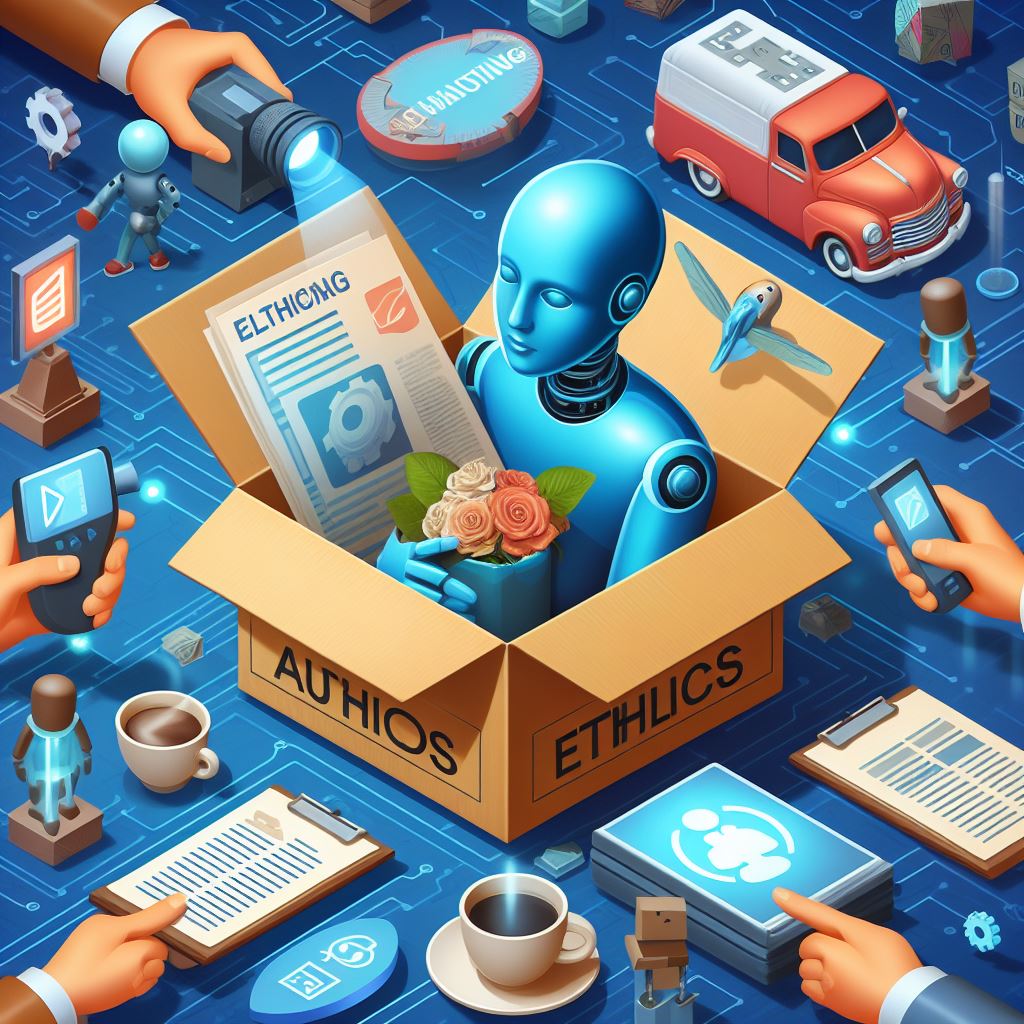
Unpacking Ethics of AI-Driven Content Creation
In the big world of creating content, Generative AI has stirred a discussion about its ethics, how well it works, and what risks it brings. As more AI-created content fills up different places, figuring out if a human or a machine wrote it has become tricky, making us ponder whether using this technology is a good idea.
Ethical Quandary
Generative AI, undoubtedly a powerful tool, has found its application in digital marketing, SEO, and PPC efforts. However, beneath its capabilities lies a significant ethical concern – the authenticity and originality of the content it produces. The ability of AI to create convincing and realistic content raises red flags regarding the dissemination of misinformation.
Authenticity and Misinformation
The risk of AI-generated content contributing to the spread of misinformation is a valid concern. Deepfakes, a form of synthetic media, can manipulate images and videos to create false narratives, potentially causing serious social and political consequences. The authenticity of information becomes a crucial consideration in the era of AI.
Intellectual Property Rights
The legal realm has also witnessed the impact of AI on intellectual property rights. Instances, such as The New York Times suing Microsoft over AI use of copyrighted work, highlight the challenges associated with AI-generated content. While the SEO industry often benefits from the use of copyrighted work through search engines, the ethical dilemma arises when one party solely gains from AI-generated content.
Also Read: Must-Try Fashion Trends for Stylish Spring 2024
Bias and Fairness
Another ethical dimension is the potential bias embedded in AI systems due to the biases present in their training data. AI systems, which can be biased, might end up causing unfair outcomes in various areas like recruitment, law enforcement, and credit scoring. For instance, gender bias in AI-generated images, showing fewer women as CEOs, emphasizes the need to fact-check content created by AI.
SEO Penalties
The impact of AI-generated content on SEO is a pressing concern. While some argue that sites can face penalties for using AI-generated content, the situation is nuanced. Factors such as lack of Expertise, Authoritativeness, and Trustworthiness (E-A-T), duplication, and plagiarism can lead to penalties. Sites must adhere to Google’s standards, especially in sensitive areas like health, finance, or legal advice.
AI-Generated Content Usefulness
A crucial aspect often debated is whether AI-generated content is genuinely helpful to readers. The consensus is that if the content meets the criteria of being well-written, authoritative, and factually correct, its origin – whether human or AI – becomes secondary. The ultimate test is the usefulness of the content to the audience.
Balancing Act
The use of AI in content creation presents a delicate balance. AI tools bring efficiency, but human review is crucial. Google prioritizes user-centric content, not just search engine optimization. Employing AI for content creation is advantageous, but it demands a careful and ethical approach, adhering to set criteria and respecting intellectual property rights.
Also Read: Healthcare Future in Africa Unveiled for 2024
Verdict
The utilization of Generative AI in content creation raises complex ethical considerations, emphasizing the need for responsible and transparent practices. As technology continues to advance, finding the equilibrium between innovation and ethical standards becomes paramount for the digital landscape’s sustainable evolution. Experimenting with AI-generated content demands a cautious approach, especially when dealing with clients’ or employers’ websites, where the stakes are high.
